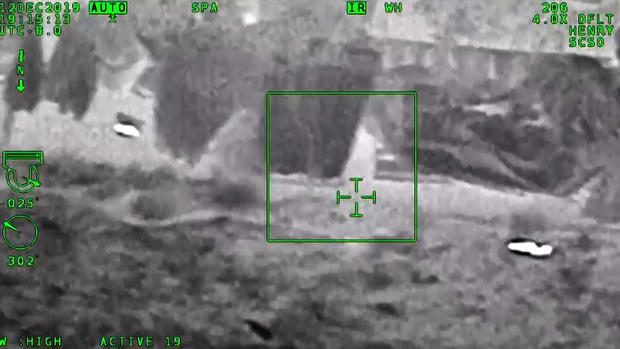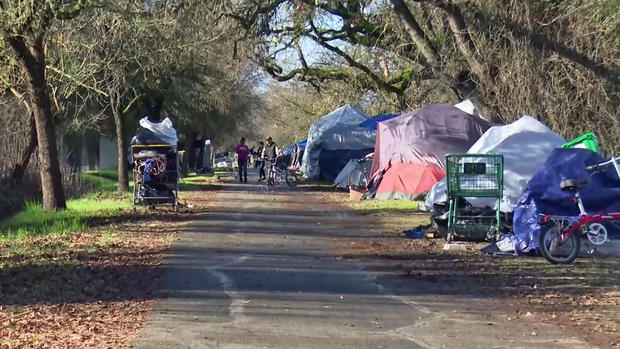Sonoma Sheriff's Video Shows Rats Overrun Hiking Trail by Homeless Camp
SANTA ROSA (KPIX) -- New aerial infrared video footage released by the Sonoma County Sheriff's Office shows rats drawn to the county's largest homeless encampment scurrying along a popular recreational trail between Santa Rosa and Sebastopol.
About 200 people currently crowd into the squalid camp along a section of the Joe Rodota Trail in Santa Rosa.
The nearly mile long encampment has been growing for years while Santa Rosa and Sonoma County have struggled to find answers. Now the county says one of the health problems cannot be ignored any longer.
"I've been living here for 25 years," says neighbor Silas Alvarenga. "Occasionally, we used to have some. But now, it's everywhere. And they are huge."
Alvarenga is talking about the rats seen in infrared video taken from the Sonoma County Sheriff's Department Helicopter.
The sheriff's office video, taken from a helicopter on Dec. 12, is disturbing. Along with the release of the video, the county announced a rat-control operation set to begin Monday. Poisons will not be used. Instead, female rodents will be baited with a non-toxic sterilizer.
The rat population has apparently surged as the camp has grown.
KPIX interviewed one of the camp's residents who suggested a simple solution to the problem.
"I honestly think if we were just to clean up after ourselves and store stuff properly," Stephen (who didn't want his last name used) told KPIX. "But not to the point that we need them to come in and take care of it for us," he says.
Rat infestation is just one of the problems here. There have been fires and episodes of violence.
"I had to get some dogs in my yard to protect our stuff. So there's an issue here, very big," Alvarenga said.
For now, the proposed solutions are short-term: bathrooms, trash and needle collection, nighttime security patrols. The county has approved a $12 million emergency plan that will create more shelter space.
"Anywhere from 60 days to six months," Stephen says of the discussion of shelter plans. Residents living just a wall or fence away say the camp is still getting larger.
"It is," Alvarenga says. "Every time you see more people coming in here with trucks, dumping their stuff in here, just finding a spot where they can stay."





